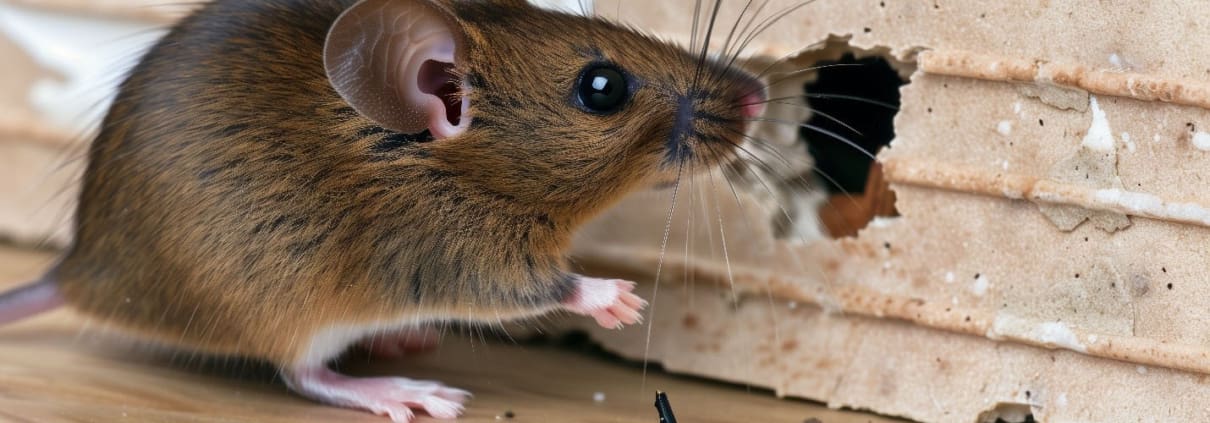What is Exclusion?
In the battle against pests, prevention is often the most effective strategy. While traditional pest control methods such as sprays and baits can help manage infestations, they are often reactive measures that address the problem after it has already occurred. Exclusion, on the other hand, is a proactive approach that focuses on preventing pests from entering a property in the first place. In this blog post, we’ll explore what exclusion is, why it’s important, and how it can benefit both homeowners and businesses in the ongoing fight against pests.
What is Exclusion?
Exclusion is the practice of sealing off entry points and implementing barriers to prevent pests from gaining access to indoor spaces. It involves identifying and addressing potential entry points, such as cracks, gaps, holes, and openings in walls, doors, windows, and foundations. By eliminating these entry points and creating a physical barrier, exclusion effectively denies pests the opportunity to invade a property and establish a foothold.
Why is Exclusion Important?
Prevention of Infestations: Exclusion is the first line of defense against pests. By sealing off entry points and preventing pests from entering a property, exclusion helps minimize the risk of infestations and reduces the need for reactive pest control measures.
Protection of Health and Safety: Pests can pose significant health and safety risks to occupants of a property. Some pests carry diseases, while others can cause property damage or contaminate food and water supplies. Exclusion helps protect the health and safety of residents, employees, customers, and visitors by keeping pests out of indoor spaces.
Preservation of Property: Pests such as rodents, termites, and carpenter ants can cause extensive damage to structures, furniture, and belongings. By preventing pests from entering a property, exclusion helps preserve the integrity of buildings and belongings, saving homeowners and businesses from costly repairs and replacements.
Reduction of Dependency on Chemicals: Traditional pest control methods often rely on chemical pesticides and baits to manage infestations. Exclusion reduces the need for chemical treatments by addressing the root cause of pest problems and preventing them from occurring in the first place.
Implementing Exclusion Practices
Inspecting and Sealing Entry Points: Conduct a thorough inspection of the property to identify potential entry points for pests. Seal off cracks, gaps, holes, and openings using materials such as caulk, wire mesh, steel wool, and weather-stripping.
Installing Physical Barriers: Implement physical barriers such as screens, mesh, and door sweeps to prevent pests from entering through doors, windows, vents, and other openings.
Maintaining Cleanliness and Hygiene: Keep indoor and outdoor spaces clean and free of clutter, food debris, and standing water, which can attract pests. Store food and garbage in sealed containers, and promptly clean up spills and crumbs.
Trimming Vegetation and Landscaping: Trim trees, shrubs, and vegetation away from the exterior of the property to eliminate potential hiding places and pathways for pests. Keep grass mowed and landscaping well-maintained to reduce pest habitat.
Partnering with Pest Control Professionals
While exclusion practices can be implemented by homeowners and businesses, partnering with pest control professionals can provide additional expertise and resources to ensure effective exclusion strategies. Pest control professionals have the knowledge, experience, and specialized tools to identify and address potential entry points, customize exclusion solutions, and provide ongoing monitoring and maintenance to keep pests at bay.
Exclusion is a proactive approach to pest control that focuses on preventing pests from entering a property in the first place. By sealing off entry points and implementing barriers, exclusion helps minimize the risk of infestations, protect health and safety, preserve property, and reduce dependency on chemical treatments. Whether you’re a homeowner or a business owner, implementing exclusion practices and partnering with pest control professionals can help ensure a pest-free environment for years to come.
Lincoln Pest and Property Solutions is a locally owned and operated business serving Rhode Island & Southeastern Massachusetts. As one of the leading pest control companies in RI, our mission for over 35 years has been simple: Provide innovative and effective pest control solutions for your home or business, while maintaining a safe environment. We use the latest in eco-friendly technology to keep your home or place of business safe and pest free.



